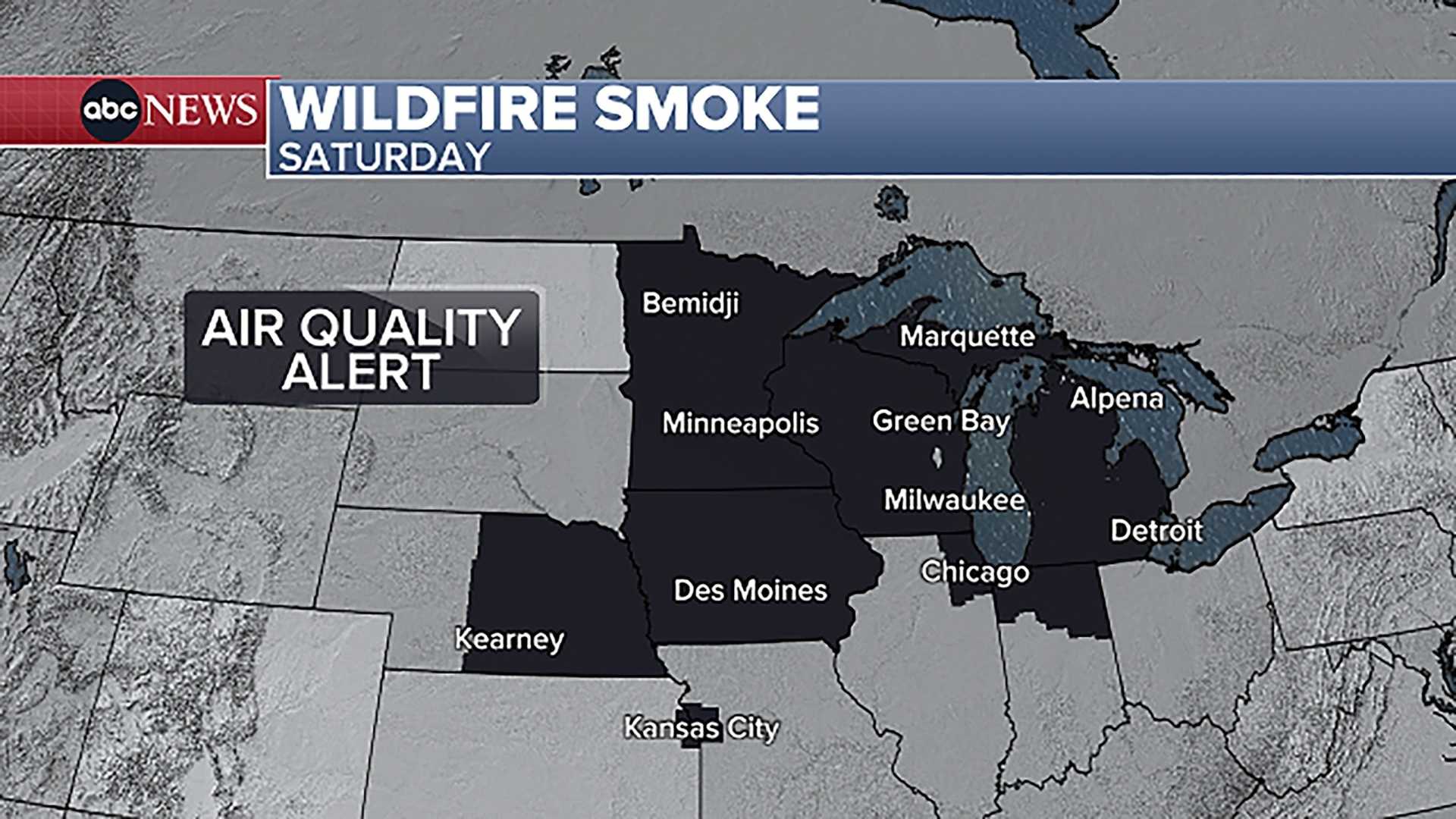Health
Air Quality Alerts Issued Across Midwest and Northeast Due to Canadian Wildfires

MINNEAPOLIS, Minnesota — Health officials have issued air quality alerts across several states from Minnesota to Maine due to smoke from wildfires in Canada. The smoke is drifting across the border, creating unhealthy air conditions and prompting residents to limit outdoor activities.
As of August 3, 2025, the northern regions of the U.S. have experienced hazy skies and decreased air quality levels. The wildfires in Canada, now one of the worst seasons on record, have led to nearly 4,000 fires, with over 700 currently active. The southern province of Manitoba is one of the hardest-hit areas.
Bob Oravec, a lead forecaster with the National Weather Service, explained the smoke’s journey, stating, “Air is moving at all levels… like a leaf getting blown,” indicating that the smoke is being transported by persistent wind patterns into the United States.
In Minnesota, the Pollution Control Agency has issued its longest air quality alert since 2008, anticipated to last until August 4. Previously, the air quality index (AQI) was expected to rise to severe levels across the state, prompting health warnings. Even healthy individuals may experience symptoms such as coughing, shortness of breath, or irritated eyes.
Similar alerts are in place in Wisconsin and Michigan. Officials have reported that the smoke’s impact has affected every county in Michigan, leading to heightened health risks for sensitive groups including children and those with pre-existing health conditions. Michiganders are urged to monitor potential symptoms and reduce outdoor activities.
The hazardous air quality poses serious health risks, as fine particulate matter can enter the lungs and bloodstream, resulting in increased complications for vulnerable populations. Outdoor exposure for sensitive individuals is particularly concerning this season, with health experts stressing the importance of caution.
The smoke has been a significant environmental issue, with thousands of Canadians evacuating due to dangerous conditions. As conditions remain unstable and forecasts predict ongoing smoke transport, residents across affected states are urged to stay informed and take necessary precautions.
Oravec noted the continued risk, stating, “It looks like that pattern maintains itself going forward through this week.” Ongoing monitoring of the AQI and health advisories is essential as the wildfire season continues and the threat to air quality lingers.












